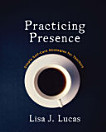The Research Game in Academic Life
Lisa Lucas
ઑક્ટો 2006 · McGraw-Hill Education (UK)
ઇ-પુસ્તક
200
પેજ
reportરેટિંગ અને રિવ્યૂ ચકાસેલા નથી વધુ જાણો
આ ઇ-પુસ્તક વિશે
- What are the implications of an increasingly competitive global system of higher education research?
- In what ways have policy changes to the evaluation and funding of university research impacted on higher education institutions in the UK and in other countries?
- How do institutional and departmental managers and individual academics organise and manage research to best maximise the gains of being successful in research?
Empirical data is drawn from qualitative case studies of two UK universities and focuses on the way in which the management and organisation of research within these institutions has responded to the demands of economic and accountability pressures and successive rounds of the Research Assessment Exercise. More particularly, the book reflects the human stories and accounts from the individuals who serve to maintain the important research and teaching work of these institutions.
The Research Game in Academic Life offers a thoughtful analysis and will make essential reading for researchers, department leaders, policy makers and managers in higher education.
આ ઇ-પુસ્તકને રેટિંગ આપો
તમે શું વિચારો છો અમને જણાવો.
માહિતી વાંચવી
સ્માર્ટફોન અને ટૅબ્લેટ
Android અને iPad/iPhone માટે Google Play Books ઍપ ઇન્સ્ટૉલ કરો. તે તમારા એકાઉન્ટ સાથે ઑટોમૅટિક રીતે સિંક થાય છે અને તમને જ્યાં પણ હો ત્યાં તમને ઑનલાઇન અથવા ઑફલાઇન વાંચવાની મંજૂરી આપે છે.
લૅપટૉપ અને કમ્પ્યુટર
Google Play પર ખરીદેલ ઑડિઓબુકને તમે તમારા કમ્પ્યુટરના વેબ બ્રાઉઝરનો ઉપયોગ કરીને સાંભળી શકો છો.
eReaders અને અન્ય ડિવાઇસ
Kobo ઇ-રીડર જેવા ઇ-ઇંક ડિવાઇસ પર વાંચવા માટે, તમારે ફાઇલને ડાઉનલોડ કરીને તમારા ડિવાઇસ પર ટ્રાન્સફર કરવાની જરૂર પડશે. સપોર્ટેડ ઇ-રીડર પર ફાઇલો ટ્રાન્સ્ફર કરવા માટે સહાયતા કેન્દ્રની વિગતવાર સૂચનાઓ અનુસરો.





